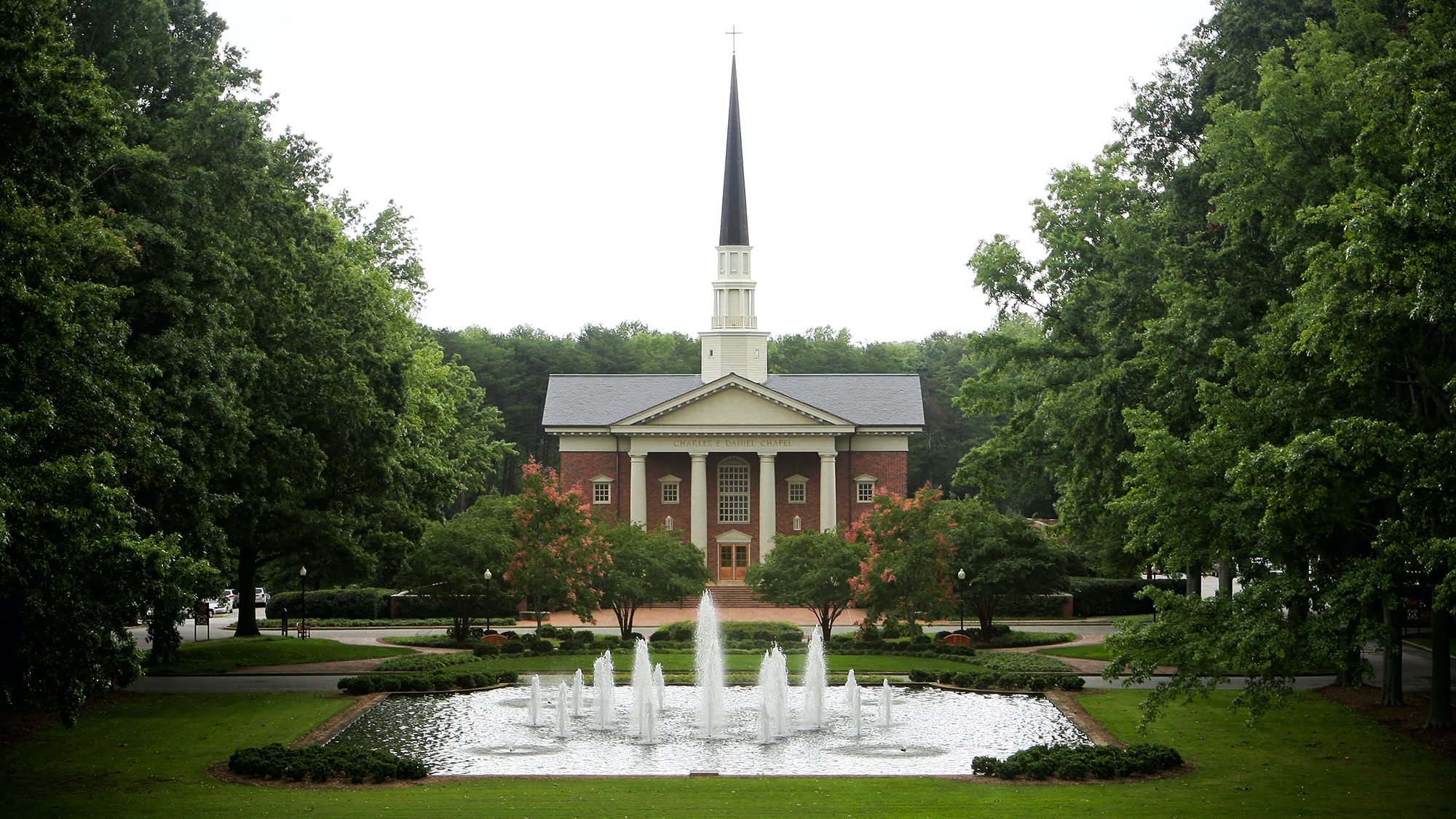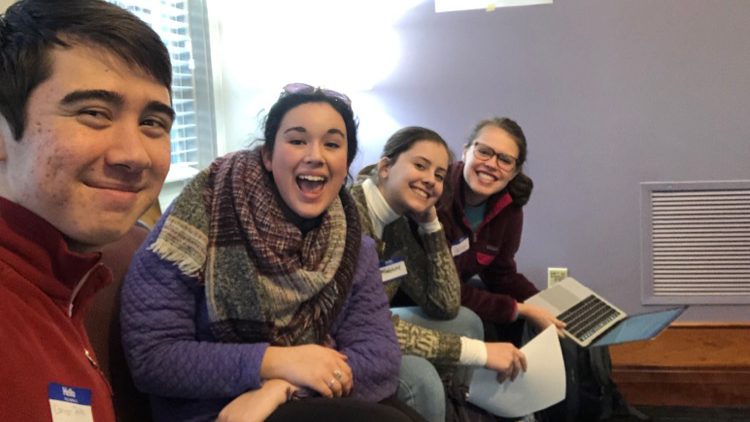Interfaith Scholar program teaches students to be leaders

The Rev. Kate Taber, associate chaplain for Furman, is working to expand students’ opportunities to explore and discuss spiritual differences.
“I really want to create a campus that has students with these life experiences and knowledge and skills,” she said of a student body that identifies to a greater degree as Christian than peer institutions.
With the help of a grant from Interfaith Youth Core, a Chicago-based nonprofit that works to make interfaith cooperation a social norm, Taber developed the Interfaith Scholars program. Four students participated during the 2019-20 school year, taking part in both intensive experiential learning and the development of campus-based programs to foster interfaith conversations.
Lauren Ghighi ’21, a religion and educational studies major from Dallas, Texas, was one of the scholars. She remembers, when she was younger, feeling that she was “fine” with people of other faiths. The program has been part of maturing her views.
“Not only being fine with it, but appreciating those differences,” Ghighi said.
Taber came to Furman in 2017 after a period of interfaith work in Jerusalem. While Furman’s Office of Spiritual Life had a history of interfaith work, no current programming focused on the topic when she arrived.
In the 2018-2019 school year, Taber won a grant to hire one student to research the current religious environment on campus, specifically focusing on ways to support students who are religious minorities.

Interfaith scholars Connor Jenkins ’22, Olivia Martins ’22, Madeleine Wiggs ’22 and Lauren Ghighi ’21 observe faculty and staff participating in Faith Zone, a religious literacy workshop, in the Garden Room of Daniel Chapel.
‘Bigger than ourselves’
The research revealed that “Furman has a relatively more Christian student body than our peer institutions,” she said. “However, we still have present in our student body religious diversity.”
The findings fueled Taber’s grant application for 2019-20: Her second proposal focused on equipping student leaders who would spend a semester learning about interfaith work and then a semester putting the lessons into practice.
“And hopefully nurture in them a passion for interfaith engagement,” Taber said.
In fall 2019, the interfaith scholars completed a variety of self-directed experiences and learning modules. Among other things, they visited religious meetings outside of their own faith tradition, interviewed students and community members of different faiths, participated in a dinner dialogue organized by the Interfaith Forum of Greenville, and planned and recruited for an interfaith pilgrimage to the United States-Mexico border.
(The trip, scheduled for March 2020, was canceled as the coronavirus spread across the country.)
Ghighi particularly enjoyed the interfaith dinner – an experience she plans to replicate for other students as her campus project for the program.
“It just opened up my eyes, being able to see their deep faith, similar to my own but in a completely different religion,” she said.
In both group meetings and written reflections, the students debriefed on the positive, negative and fascinating aspects of their fall experiences.
Olivia Martins ’22, a politics and international affairs major, called the first semester “powerful and moving.”
In her written reflection, she highlighted the conversation at the interfaith dinner she attended, where she found herself surprised by things she heard from both Baptists and Baha’is.
“We all want something to believe in that is bigger than ourselves, somewhere we can go when life is hard, and a community of people who support us,” Martins wrote. “How we find this peace, hope, and love does not change that fact that we are all seeking similar things.”
Besides the pilgrimage, the spring semester was going to focus on leadership projects on campus. Taber was proud of the way the students adjusted when the campus had to close.
Martins was preparing a religious literacy presentation for other students. Instead, she’ll present the material virtually to her home congregation. Ghighi moved her spring plans for an interfaith dinner to the 2020 fall semester. Madeleine Wiggs ’22 was able to continue her research on interfaith engagement happening at colleges and universities with similar demographics to Furman’s.
Plans for the future
The students joined the program for different reasons. Ghighi, for example, plans to work in youth ministry after attending seminary. She hopes to have a role in bringing interfaith conversations to a younger level. Connor Jenkins ’22 is studying Spanish and plans to be doctor. He saw Interfaith Scholars as an opportunity to improve his cross-cultural skills.
“They’re all really open-minded people, curious people who have a deep capacity for learning about differences,” Taber said.
Ghighi said it’s important for students and faculty who are part of the religious majority to be mindful of others who are not.
“If you’re not looking for them, it’s easy for them to fall into the shadows,” she said.